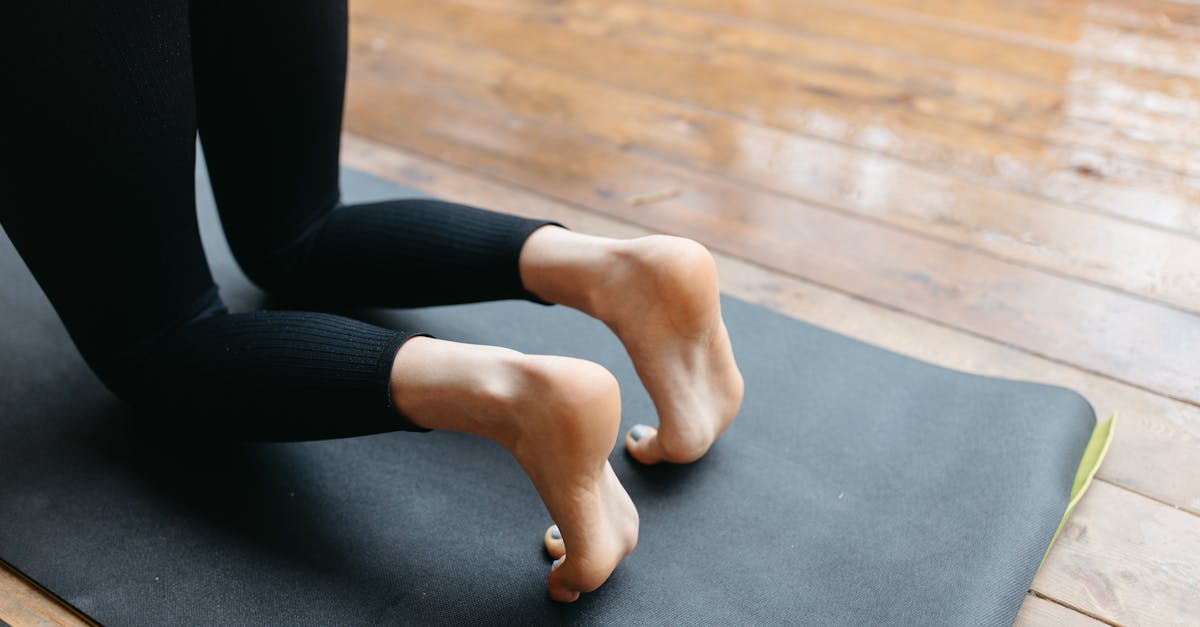Suffering from shoulder pain relief from a rotator cuff injury? Discover the essential workouts for recovery.
In Short: Are you dealing with a rotator cuff injury causing you persistent discomfort? Enhance your recovery through tailored shoulder pain exercises designed to improve mobility and support healing. Understanding the best exercises for rotator cuff injury can significantly aid in relieving symptoms associated with frozen shoulder, shoulder impingement, and bursitis. Pulse Align Clinics offer a unique and simple approach to neuromodulation, fostering postural recalibration that promotes natural healing. Reclaim your health and wellness at Pulse Align Clinics. Book your appointment today!
Are you struggling with lower back pain and poor posture?
Essential workouts for rotator cuff recovery: discovering Pulse Align’s crucial relationships can be your gateway to overcoming shoulder pain and enhancing mobility. Many individuals experience shoulder pain due to conditions like shoulder impingement and bursitis, while others face the challenges posed by a frozen shoulder. Engaging in the best exercises for rotator cuff injury, along with focused shoulder pain exercises, can significantly aid recovery and alleviate discomfort. With an emphasis on posture correction and core strengthening, Pulse Align employs innovative methodologies that enhance results in addressing shoulder pain when lifting the arm. Discover how you can reclaim your strength and improve your quality of life.

“`html
In the quest for improved well-being and posture improvement, the right exercises are vital, especially when focusing on the recovery of your rotator cuff. Neuromuscular recalibration has emerged as a holistic approach, promoting natural balance within the body. Welcome to Pulse Align, where we emphasize gentle stimulation techniques to help our clients cultivate optimal function.
Understanding the Benefits of Gentle Stimulation
Our bodies are designed with inherent abilities that can be invigorated through focused methods. At Pulse Align, we work towards recalibrating muscle tone while enhancing overall functional balance. Gentle stimulation techniques encourage the body to restore itself to harmonious states without invasive methodologies.
A Holistic Approach to Well-Being
The beauty of Pulse Align lies in its commitment to natural healing. Clients often express how they may improve posture naturally and regain the flexibility they thought lost. Testimonials reveal heartfelt transformations, where individuals find their discomforts alleviated through structured movements that align with their body’s capabilities. One satisfied client remarked, “Since integrating Pulse Align’s practices, I’ve realized the positive influence on my daily activities.”
Take the First Step Towards Recovery!
If you’re ready to discover the benefits of Pulse Align, consider booking a consultation. With locations in cities like Montreal, La Prairie, Terrebonne, and more, finding a Pulse Align clinic that fits your needs is simple. Experience our holistic, family-friendly approach to well-being today! Find a Pulse Align clinic near you! Remember, Pulse Align complements existing healthcare services, supporting your journey towards a balanced and fulfilling life.
Essential Workouts for Rotator Cuff Recovery
- Pendulum Swings: Gentle mobilization for increased shoulder flexibility.
- External Rotation: Strengthens stabilizing muscles using resistance.
- Scapular Retraction: Enhances posture by aligning shoulder blades.
- Internal Rotation: Builds shoulder strength for better stability.
- Sleeper Stretch: Aids in releasing tension from frozen shoulder.
- Wall Slides: Encourages proper shoulder movement patterns.
- Resistance Band Rows: Promotes shoulder strength while minimizing strain.
- Isometric Holds: Increases stability without stress on the joint.
- Doorway Stretch: Improves shoulder flexibility and relieves tightness.
- Shoulder Blade Squeeze: Strengthens upper back, supporting posture.

When it comes to shoulder pain relief, particularly for those suffering from a rotator cuff injury, understanding effective workouts is essential. At Pulse Align, we advocate for a holistic approach that intertwines neuromuscular health, posture improvement, and holistic recalibration. By discovering the best exercises for rotator cuff recovery, individuals can enhance their mobility, alleviate discomfort, and embrace renewed vitality. This article delves into the crucial relationships that underpin our recovery methodologies for effective shoulder pain management.
Understanding Shoulder Pain Causes
Before initiating any treatment, it is vital to recognize the shoulder pain causes. Conditions such as bursitis, tendinitis, and shoulder impingement often stem from muscle imbalances and poor posture. By understanding these underlying issues, we can tailor our approach to recovery effectively.
The Role of Posture Correction
Analysis shows that posture correction plays a significant role in reducing shoulder pain when lifting the arm. Proper alignment not only enhances mobility but also protects the brachial plexus from undue strain. Implementing posture-improving exercises in daily routines can significantly decrease discomfort and improve overall symmetry.
Best Exercises for Rotator Cuff Injury Recovery
Integrating targeted shoulder pain exercises is paramount in the recovery process. Here are some essential workouts recommended for those dealing with rotator cuff injuries:
Pendulum Swings
This gentle but effective exercise promotes shoulder mobility. To perform this, bend at the waist and let your affected arm hang, allowing it to move in soft circular motions. This movement improves blood circulation and relieves stiffness without aggravating the shoulder.
External Rotation with Resistance Bands
Using resistance bands for external rotation strengthens the stabilizing muscles. This exercise is crucial for enhancing shoulder function and stability. Secure the band at waist height, pull outward while keeping your elbow tucked to your side.
Scapular Retraction
Pinching the shoulder blades together can promote better posture. This exercise not only enhances shoulder stability but is also beneficial for individuals experiencing discomfort from a frozen shoulder.
Wall Slides
Standing against a wall, practice sliding your hands up and down. This exercise fosters proper shoulder movement patterns and flexibility—essential for those recovering from injury.
Core Strengthening and Trunk Exercises
Incorporating core strengthening and trunk exercises in your routine can provide additional support for shoulder recovery. Strong core muscles contribute to better posture and stability, which are essential for preventing future injuries and fostering comfortable movement.
Call to Action
If you’re ready to reclaim your health and enhance your wellness journey, consider booking a consultation with Pulse Align. Our expert team is dedicated to tailoring exercise plans that align with your unique needs, addressing specific concerns such as how to relieve frozen shoulder pain or manage shoulder pain at night. Explore our clinics in Montreal, La Prairie, and Panama City to discover more about our personalized holistic recovery methods today!
| Workout Type | Benefits |
|---|---|
| Pendulum Swings | Gentle mobilization that enhances shoulder flexibility and promotes natural circulation. |
| External Rotation | Strengthens the rotator cuff, fostering stability and balance in shoulder alignment. |
| Scapular Retraction | Encourages postural improvement, supporting upper body alignment and reducing tension. |
| Wall Slides | Promotes proper shoulder movement patterns, enhancing overall mobility and coordination. |
| Sleeper Stretch | Aids in relieving discomfort while fostering gentle muscle balance around the shoulder. |
| Resistance Band Rows | Builds shoulder strength with a focus on functional stability and symmetry. |
| Internal Rotation | Enhances shoulder strength while encouraging natural recalibration of joint position. |
| Isometric Holds | Supports overall strength and promotes muscle tone without stress on the joints. |
| Doorway Stretch | Enhances flexibility while alleviating tightness, contributing to overall wells being. |
| Shoulder Blade Squeeze | Strengthens the upper back for better postural support and alignment. |

Transforming Wellness Journeys Through Essential Workouts
“Since discovering Pulse Align, my journey to recovery from my rotator cuff injury has been nothing short of miraculous. The supportive environment and unique techniques have nurtured my body’s natural ability to recalibrate. I’ve felt improvements not only in my shoulder strength but also in my overall wellness. Now, I can engage in activities I once thought were impossible!”
A client from Terrebonne shared, “I was skeptical at first, but after integrating the essential workouts into my routine, I have experienced such significant changes. The focus on holistic recovery at Pulse Align helped me understand how posture and movement impact my condition. I feel more balanced and alive than ever!”
Another resident of Sainte-Marie stated, “What sets Pulse Align apart is their commitment to working alongside my healthcare team. Their approach to enhancing my body’s functions has provided me with tools to manage my shoulder pain effectively. I’m grateful for the renewed sense of vitality I now enjoy.”
In Chicoutimi, clients are benefitting from the essential workouts that foster natural recovery. One individual expressed, “Practicing the exercises recommended by my Pulse Align therapists has led to a remarkable reduction in my discomfort. I finally feel empowered to regain my strength and confidence.”
Living in Charlesbourg, a client emphasized, “Pulse Align has changed my life! The gentle yet effective techniques have restored balance in my body that I didn’t know was possible. It is amazing to see how much progress I’ve made and feel myself recalibrating naturally.”
Residents of La Prairie are also discovering the benefits of these essential workouts for rotator cuff recovery. A local client noted, “The supportive environment at Pulse Align has fueled my journey toward holistic recovery. The programs focus on creating balance and strength, allowing me to move without pain.”
If you are located in Deux-Montagnes or other nearby areas, consider how Pulse Align can contribute to your wellness journey. The precise, tailored approach they provide harmonizes with every client’s needs and emphasizes reconnecting with your body’s potential.
To explore how you too can benefit from these essential workouts and reclaim your health, visit Our Clinics. Pulse Align proudly works alongside healthcare teams to enhance your wellness journey and support you and your family toward achieving better body function and overall well-being.
Understanding the Importance of Movement
Unlocking a life free from shoulder pain is essential for anyone suffering from a rotator cuff injury. At Pulse Align, we emphasize a holistic approach to shoulder pain relief through targeted exercises that focus on neuromuscular health, posture improvement, and holistic recalibration. This article reveals the best exercises to regain strength, mobility, and balance in your shoulder while addressing common concerns such as frozen shoulder and pain when lifting the arm.
Effective Shoulder Pain Exercises
To effectively combat shoulder pain, here are essential exercises designed to enhance mobility and strength in the rotator cuff:
- Pendulum Swings: This gentle, low-impact movement helps mobilize the shoulder joint without straining.
- External Rotation with Resistance Band: Attaching a resistance band at waist level, this exercise strengthens the stabilizing muscles of the rotator cuff.
- Scapular Retraction: Improves posture by pinching the shoulder blades together.
- Wall Slides: Fosters proper shoulder movement patterns.
Incorporating these shoulder pain exercises into your daily routine can maximize recovery. Aim to perform these exercises at least three times a week.
Seek Professional Guidance at Pulse Align
At Pulse Align, we believe in a proactive approach to neuromuscular health and effective recovery practices. We invite you to book a consultation to explore personalized exercise plans that complement your specific needs. Our clinics are ready to support you through your journey of recovery and wellness.
Our Mission
At Pulse Align, our mission is to deliver evidence-based, client-centered treatments that address the underlying causes of pain and dysfunction. By integrating advanced techniques and technologies, we strive to empower each person to take control of their health, ensuring a high standard of care, lasting relief, and an improved quality of life.
Learn more about our approach and available services at www.pulsealign.com and find a location near you here: https://pulsealign.com/our-locations/.
“`html
TAGMED’s Advanced Spinal Decompression Therapy: A Non-Surgical Solution for Chronic Pain Relief
TAGMED offers an innovative Spinal Decompression Therapy designed specifically to address moderate-to-severe disc issues, such as herniated discs, bulging discs, and conditions related to spinal stenosis. This non-surgical solution gently reduces pressure on the affected discs and nerves, enhancing mobility, alleviating pain, and supporting the body’s natural healing process. If you’ve reached a plateau with other therapies, discover how TAGMED’s evidence-based decompression approach can help you resume an active, comfortable life.
Have you tried conventional treatments and still struggle with persistent back pain due to a severe disc condition?
Mechanism of Action
TAGMED’s neurovertebral decompression applies a controlled, progressive traction force to the spine, increasing the space between vertebrae. This method effectively reduces pressure on intervertebral discs and nerve roots, promoting better fluid circulation in the targeted areas. By lowering inflammation and relieving pain, this approach provides a reliable, non-invasive solution for individuals with chronic back pain and related issues, enhancing overall well-being.
Specific Benefits
This non-invasive method is effective in alleviating chronic pain and symptoms related to conditions such as herniated discs and spinal stenosis. Notably, it reduces pressure on crucial nerve structures while optimizing fluid circulation around the discs—factors that can significantly accelerate recovery and improve the quality of life for patients dealing with persistent discomfort, including those suffering from sciatica or degenerative disc disease.
Comparison with Other Treatments
When compared to other commonly used treatments like pain medications, corticosteroid injections, surgery, or traditional physiotherapy, TAGMED’s neurovertebral decompression stands out for its unique benefits. It avoids invasive interventions, minimizes medication-related risks, and can potentially offer a quicker path to recovery. This makes it a compelling choice for those seeking safer, evidence-based alternatives to manage their chronic pain symptoms.
Case Studies or Testimonials
Numerous patients have experienced remarkable improvements following TAGMED’s neurovertebral decompression therapy. Testimonials highlight lasting pain relief, a quicker return to daily activities, and decreased reliance on pharmaceuticals. One patient shared, “After beginning treatment at TAGMED, my back pain significantly lessened, allowing me to return to work without discomfort.” These firsthand accounts showcase the tangible results and practical advantages of this innovative therapeutic approach.
Embrace a Healthier Future with Pulse Align
If you’re on the journey to recovery from a rotator cuff injury, exploring tailored workouts at Pulse Align offers significant advantages. Our approach emphasizes posture correction, a crucial element in enhancing your overall wellness. By focusing on gentle techniques, clients have reported improved posture, reduced discomfort, increased mobility, and overall enhanced well-being.
At Pulse Align, we prioritize your experiences, understanding the transformative power of a supportive environment. Many clients have shared uplifting testimonials about rediscovering their strength and achieving greater overall balance in their lives. This encouraging feedback underscores our commitment to a client-focused wellness journey, allowing individuals to feel empowered and revitalized as they embrace a pain-free life.
We invite you to take the next step towards achieving your wellness goals with Pulse Align. Discover the difference our holistic health approach can make in your life. Schedule your consultation now and witness firsthand how our focus on neuromuscular recalibration and natural pain relief can elevate your health. Join us on this journey to reclaim your body’s innate ability to heal and restore balance. Together, we can pave the way to a vibrant, more fulfilling lifestyle.
Begin your journey today and embrace the hope and encouragement that comes with taking charge of your health!

Do you suffer from a chronic condition that responds little or not at all to conservative treatments?
At Pulse Align, we provide a non-invasive, innovative method designed to aid in restoring the body’s natural balance and posture through gentle, imperceptible pulses. Our approach not only promotes a sense of well-being but also aims to reduce muscle and joint tension, guiding clients on a journey toward improved comfort and mobility.
Rather than focusing directly on discomfort or conditions, Pulse Align seeks to facilitate the body’s natural self-calibration. Clients often discover remarkable improvements in overall comfort and posture as they engage with our services, experiencing enhanced vitality in their daily activities.
Our personalized approach at Pulse Align sets us apart. Many clients have shared inspiring testimonials that reflect significant enhancements in tension relief and overall wellness. The gentle methods we utilize foster a renewed connection with the body, contributing to heightened awareness and balance in movement, positively impacting various areas of life.
We invite you to explore the Pulse Align website to learn more about our services, find nearby locations in cities such as La Prairie, Mont-Royal, and Terrebonne, and book a consultation for yourself or your family. Remember, Pulse Align works alongside your existing healthcare services, promoting a holistic approach to wellness without replacing professional care. Discover how our gentle, family-friendly methods can support your journey to improved well-being. To learn more about our services and book an appointment, visit our website: Pulse Align.
Frequently Asked Questions
Shoulder Pain
Do stretches help relieve shoulder pain?
Regular, gentle stretching can improve joint flexibility and reduce muscle tension around the shoulder.
Is overtraining a frequent cause?
Yes, excessive training without proper rest can cause micro-tears and shoulder pain.
How do I know if my shoulder pain is serious?
If the pain lasts several weeks, severely limits movement, or is accompanied by swelling, redness, or deformity, seek medical attention.
What is shoulder osteoarthritis?
Shoulder osteoarthritis is the progressive wear of joint cartilage, causing pain, stiffness, and reduced mobility.
Is mild morning shoulder stiffness normal?
A slight stiffness can be normal, but if it lasts long or is painful, seek medical advice.
Is rotator cuff tendinitis common?
Yes, it’s one of the most frequent causes of shoulder pain, especially in those who perform repetitive arm movements.
Can I use resistance bands to relieve shoulder pain?
Yes, resistance bands allow progressive strengthening of shoulder muscles, but do it without pain.
Are throwing sports more at risk for shoulder problems?
Yes, repetitive throwing (baseball, handball) heavily stresses the rotator cuff, raising injury risk.
What are common causes of shoulder pain?
Causes include rotator cuff tendinitis, bursitis, ligament injuries, osteoarthritis, dislocations, and repetitive motions.
Can massages relieve shoulder pain?
Yes, a gentle massage can release muscle tension, improve circulation, and reduce pain, but avoid abrupt movements.
Adam Blanc understands that shoulder pain can do more than slow you down—it can impact your entire quality of life. As a Shoulder Pain Awareness Advocate at Pulse Align, he’s dedicated to showing readers that genuine relief is not just possible, but within reach. Drawing on the latest research, Adam combines expert insights with compassionate guidance, inspiring people to move toward greater comfort and mobility. His approach is about more than just managing symptoms; it’s about empowering individuals to rediscover their strength and embrace every moment, free from the constraints of pain.
Medical Disclaimer
The information and advice provided on this site do not replace the advice, diagnosis, or treatment of a healthcare professional. Please note that the author of this article is neither a doctor nor a specialist in a medical specialty as defined by the Collège des médecins du Québec. Manual medicine, functional medicine, and sports medicine as described on this site exclude any medical treatment or diagnosis made by a doctor or medical specialist. Always consult your doctor for any medical questions. For more details, please read our complete Legal Notice.




